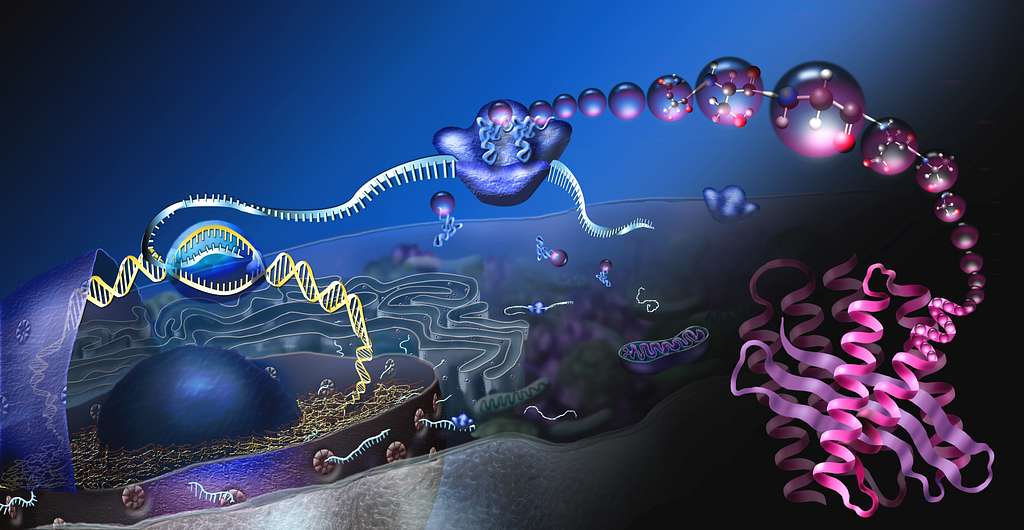Over the last two decades, an area of research that has revolutionised several industries and reshaped the boundaries of innovation, science, and technology is synthetic biology. While traditional biology helps us understand life, synthetic biology is more advanced as it redesigns and reprograms living organisms for useful purposes. It leverages engineering principles to design and construct new biological systems or modify existing ones.
What is Synthetic Biology?
Synthetic biology is an area of science where researchers redesign or reprogram organisms, such as yeast, bacteria, or plants, to possess new abilities and perform useful jobs. Researchers worldwide are solving problems in the areas of agriculture, manufacturing, and medicine by utilising the power of nature. Synthetic biology projects focus on redesigning living organisms to create a substance, such as a fuel or medicine, or acquire a new ability, such as sensing something in the environment.
How is Synthetic Biology Adding Value?
Synthetic biology is becoming a global game-changer, from creating sustainable fuels to developing life-saving drugs, from revolutionising agriculture to tackling climate change. Here’s an overview of how the innovative field is adding value.
Medicine and Healthcare
One of the most immediate and prominent effects of synthetic biology is in medicine and healthcare.
- Cancer-fighting tools: Researchers are engineering bacteria to act as living treatments that attack cancer cells with enhanced safety and precision. These smart immune cells, such as CAR-T cells, don’t disturb the healthy tissue.
- Mass medicine production: Synthetic biology enables the production of complex drugs that are otherwise difficult or expensive to obtain. For instance, it eliminates the limitations of traditional plant-based extraction methods and uses engineered yeast and bacteria to produce the antimalarial drug artemisinin.
- Personalised therapies: Synthetic biology is transforming the way diseases are treated by providing tailor-made treatments. Engineered bacteria are being designed to stay in the human gut and detect or treat conditions, including inflammatory bowel disease.
- Vaccine development: Synthetic biology assisted in the rapid production of mRNA vaccines during the COVID-19 pandemic. The achievement showcased how programmable biology can respond to global crises at unprecedented speed.
Together, these breakthroughs point to a future where synthetic biology may not only treat but also prevent many diseases.
Climate Change and Environmental Sustainability
Another area where synthetic biology is addressing pressing challenges is the environment. As humanity faces the consequences of climate change, pollution, and resource depletion, synthetic biology offers solutions that are both innovative and sustainable.
- Carbon capture and utilisation: Researchers of synthetic biology are engineering microbes that can consume carbon dioxide and convert it into useful products, such as biofuels or biodegradable plastics.
- Plastic waste degradation: Synthetic biology has enabled the design of enzymes that can break down stubborn plastics to resolve the global plastic waste crisis.
- Sustainable fuels: Synthetic biology enables the production of clean, renewable fuels from engineered organisms, reducing dependency on fossil fuels.
Synthetic biology helps re-engineer life to provide solutions for restoring the balance between human activity and the natural world.
Agriculture and Food
With the significant population growth, food security is a pressing challenge. The field of agriculture stands to benefit immensely from the advancements in synthetic biology.
- Agricultural resilience: Engineering crops with enhanced nutritional content, increased resistance to pests and diseases, and improved tolerance to environmental stresses, such as drought, poor soil, and salinity, can contribute to global food security. For example, researchers are developing crops that can fix nitrogen from the atmosphere, reducing the need for synthetic fertilisers, which are environmentally damaging.
- Alternative proteins: Engineered microbes are being used to produce meat alternatives, dairy proteins, and even seafood without the need for animals. Companies rely on synthetic biology techniques to create sustainable, ethical, and scalable food sources.
- Nutritional enhancement: Crops can be genetically fortified with essential vitamins and nutrients, combating malnutrition in vulnerable populations.
Synthetic biology can help create a more sustainable and less resource-intensive food system, capable of feeding a growing population without devastating the planet.
Economic and Societal Impact
Synthetic biology is also transforming the economic and societal landscape by offering bio-based alternatives to petroleum-derived products.
- Bio-manufacturing: Instead of relying on fossil fuels, microbes can be reprogrammed to produce materials such as biofuels, fabrics, rubber, and even construction materials.
- Green economy: Synthetic biology enables the creation of chemicals and industrial compounds without toxic by-products, reducing pollution and making manufacturing safer.
- Sustainable solutions: It provides more sustainable and efficient methods for manufacturing goods and managing resources. Consequently, pressing global challenges, including climate change and food security, can be solved.
- Circular Economy: Through engineered organisms, it converts waste back into valuable raw materials, closing the loop of production and consumption.
- Cost Reduction and Accessibility: Synthetic biology streamlines processes and utilises renewable resources, reducing the cost of various products and making them more accessible.
This bio-led industrial revolution is generating a substantial amount of money in global investments and is expected to contribute to future economies.
Synthetic Biology – A Future of Possibilities
Synthetic biology is more than just a rapidly growing branch of science; it is a significant revolution. The Industrial Revolution transformed economies, while the Digital Revolution changed how we connect and live. Synthetic biology is here to redefine the 21st century with its potential to:
- Cure diseases once considered incurable
- Feed billions without exhausting the planet
- Reverse the effects of climate change
- Create new industries and jobs
- Extend human lifespans and enhance the quality of life
In short, synthetic biology is a game-changer because it has the potential to redesign life itself and solve some of the biggest challenges for humankind. By combining biology with engineering and digital technologies, it is exploring opportunities that once seemed like science fiction. It can revolutionise sectors and introduce transformative solutions, fundamentally altering the trajectory of humanity.
Article by Gayatri Sarin

